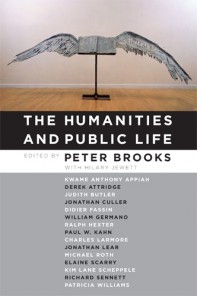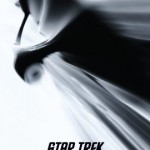Education's End: Why Our Colleges and Universities Have Given Up on the Meaning of Life by Anthony T. Kronman (New Haven: Yale U. Press, 2007). My rating: 4 of 5 stars. Anthony Kronman had me by the time I got to the subtitle. I wanted to know, “why, indeed, have our colleges and universities given up on the meaning of life?” It brought to mind a conversation with a religious studies faculty about the evidence from studies of spirituality in higher education of the longing of students to talk openly about … [Read more...] about Book Review: Education’s End
ethics
Book Review: The Humanities and Public Life
The Humanities and Public Life edited by Peter Brooks with Hilary Jewett (Bronx: Fordham University Press, 2014). My rating: 3 of 5 stars. There is no question but that the humanities are under fire. Budgets are being cut, sometimes whole departments. How then to justify the humanities within the university, without accepting “instrumentalization”, a term thrown around much in this book, which means roughly, being able to demonstrate some “deliverable” or bottom line worth. Peter Brooks, the editor of … [Read more...] about Book Review: The Humanities and Public Life
The Ethics of Science PR
Darwinius masillae, aka "Ida." From Wikipedia Last week, Inside Higher Ed reported the launch of Futurity.org, a new website intended to provide a direct outlet for research universities to announce science news. It's led by Duke, Stanford, and U. Rochester, and the 35 participating universities include some pretty big names. Earlier this summer, ESN reader and commenter Dave Snoke sent us a couple of links and some good questions that, unfortunately, we weren't able to get to until now. Dave was remarking upon … [Read more...] about The Ethics of Science PR
Week in Review: Ethics
Norman Borlaug's Nobel Prize Lecture - The death of Borlaug, one of the founders of the Green Revolution, sparked numerous tributes (NY Times, WSJ, Guardian). Gregg Easterbrook in the WSJ estimates that Borlaug's agricultural work has saved more than 1 billion lives and counting. Leave it to GetReligion, however, to highlight the link between his Lutheran roots and his agricultural work. In his 1970 Nobel Prize lecture, Borlaug cites Genesis 41, Isaiah 8 and Isa. 35, Joel 1, and Amos 4 as justification for both his work … [Read more...] about Week in Review: Ethics
Star Trek: The Right Stuff?
Note: Contains spoilers and has become more of a reflection than a review* ... Faith & Geekery claims Star Trek Will Rock the Summer. Yes, Star Trek features superb action, casting, soundtrack, and special effects. As a fan who only reached the theater on Monday (to distinguish myself from Trekkies who went to the early screening in uniform/costume on Thursday night), Star Trek not only fit in the 43 year history well enough, but also created the foundation for a future series which will boldly go where … [Read more...] about Star Trek: The Right Stuff?


